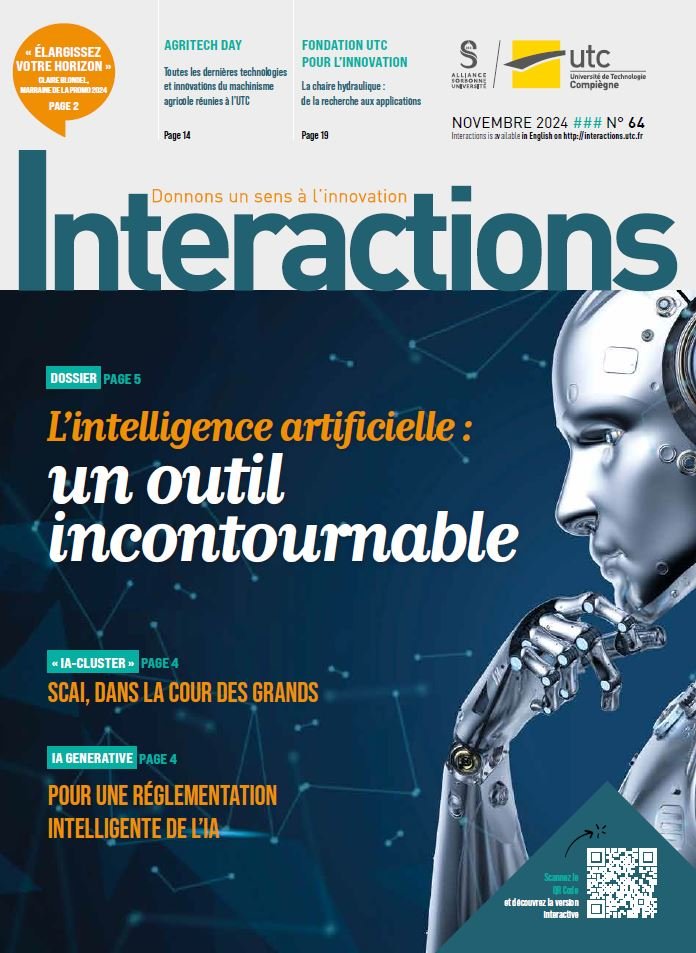Health and preventive medicine, the strength of a team

At UTC, student health and preventive medicine are taken very seriously. In fact, there is a dedicated service staffed with health professionals constantly available and accessible free of charge. They include a nurse, a psychologist, a general practitioner and a student health relay coordinator.
Alice Hoogendoorn-Marichez is a general practitioner at UTC. As a part-time doctor in the preventive medicine department, she has a number of roles to fulfil in addition to her traditional duties, such as receiving consulting students at their request (physical health, mental health, referral to the department’s psychologist or to external psychologists, specialized interviews for advice or guidance (diet, sexuality, STIs, sleep, etc.). «I take charge of providing medical advice following treatment and referral by the department’s nurse, Dominique Albanese, as well as preventive medical visits in parallel with preventive nursing interviews. At the start of each academic year, there are slots dedicated exclusively for consultations, in connection with requests for certificates of non-counter-indication in regard to the practice of leisure sports. I’m also an certified CDAPH (commission for handicapped persons) doctor, providing medical advice on special exam arrangements for students with disabilities. I’m also a member of the UTC’s unit fighting sexist and sexual violence against students and I also provide mental health first aid training for staff and students,» explains the doctor, who also runs awarenessraising modules on certain topics for the Etudiants Relais Santé (ERS Health Relay), who play a key role in prevention by and for peers, and act as a link between the preventive medicine service and students.
Drugs, alcohol and virtual reality
«In 2023, we also tendered following an ARS call for projects on the prevention of addictive behaviours among students. We chose to work on alcohol, cannabis, cocaine and nitrous oxide, with the help of an addictologist and a graphic designer. From September onwards, we shall be presenting students with a campaign to raise awareness of the harmful effects of alcohol, using shocking virtual reality videos,» says ERS coordinator Sandra Morineau, who is also working with students on an escape game on the subject of nitrous oxide and on the preparation of a party-goer’s kit, to be handed out during matriculation induction, which will include glass protection and breathalysers. «To broaden our preventive actions, we are fortunate enough to benefit from student jobs financed by the Hauts-de- France region: Student Health Relays, supervised by the ERS coordinator, under the responsibility of the preventive medicine department. Through the ERS, a collective prevention approach has been developed over time. For harm reduction, we already have links with external structures such as SATO, cf. sato-picardie.fr) and the French national addiction association.
The “MPSL” (Master plan for improving student life at UTC, 2024–2028) as a guideline
Alice Hoogendoorn-Marichez naturally took part in the preparatory meetings and working groups to draw up the MPSL “master plan for improving student life”. She was appointed pilot for ambition 1–1 of axis 1, entitled «Improving prevention and access to care, and helping students to take charge of their own health», and all the members of the preventive medicine department are co-pilots for other points of the MPSL, physical and sports activities, or the promotion of equality, respect and inclusiveness in all aspects of student life,» stresses the doctor, for whom each member of the department has a particular role to play in student life, and therefore likewise in the MPSL. One of its objectives is to emphasize «the importance of taking care of oneself» in a general sense and thereafter to focus on more specific subjects such as addiction prevention and harm reduction in party-going environments.
Mental health taken into account appropriately
Mental health has always been an important issue at UTC, even before the introduction of the MPSL — which will help to raise the profile of what already exists, and also enable the development of other projects around students’ mental health, such as the presentation of the department’s psychologist and the medical department at the start of each academic year.
The psychologist provides free, confidential consultations, with the possibility of telephone interpretation to overcome language barriers, plus remote follow-up when students leave Compiegne for internships or abroad, so as not to interrupt follow-up. She also provides various psychological assessments, which are costly if carried out in private practice, and ‘assertiveness’ workshops. These are full-time consultations for the clinical psychologist, with over 1 200 appointments each academic year.
The aim is also to facilitate direct access to the psychologist for students, thanks to the Doctolib internet platform and the possibility of setting up in-house psychotherapy by the psychologist too. «The student can consult the university psychologist for any type of difficulty: malaise, stress, personal or family problems, anxiety…
There is also extensive liaison work with other mental health structures or general practitioners, psychiatrists and neuro-psychologists for sometimes duplicate follow-ups. At the start of each semester, the ERS also provides training on stress and the helping relationship, to give peers the keys to directing students in difficulty towards a health professional,» points out psychologist Catherine Carpentier, who also works with the local mental health committee of the Compiegne conurbation and the Centre Médico Psychologique.
KD




